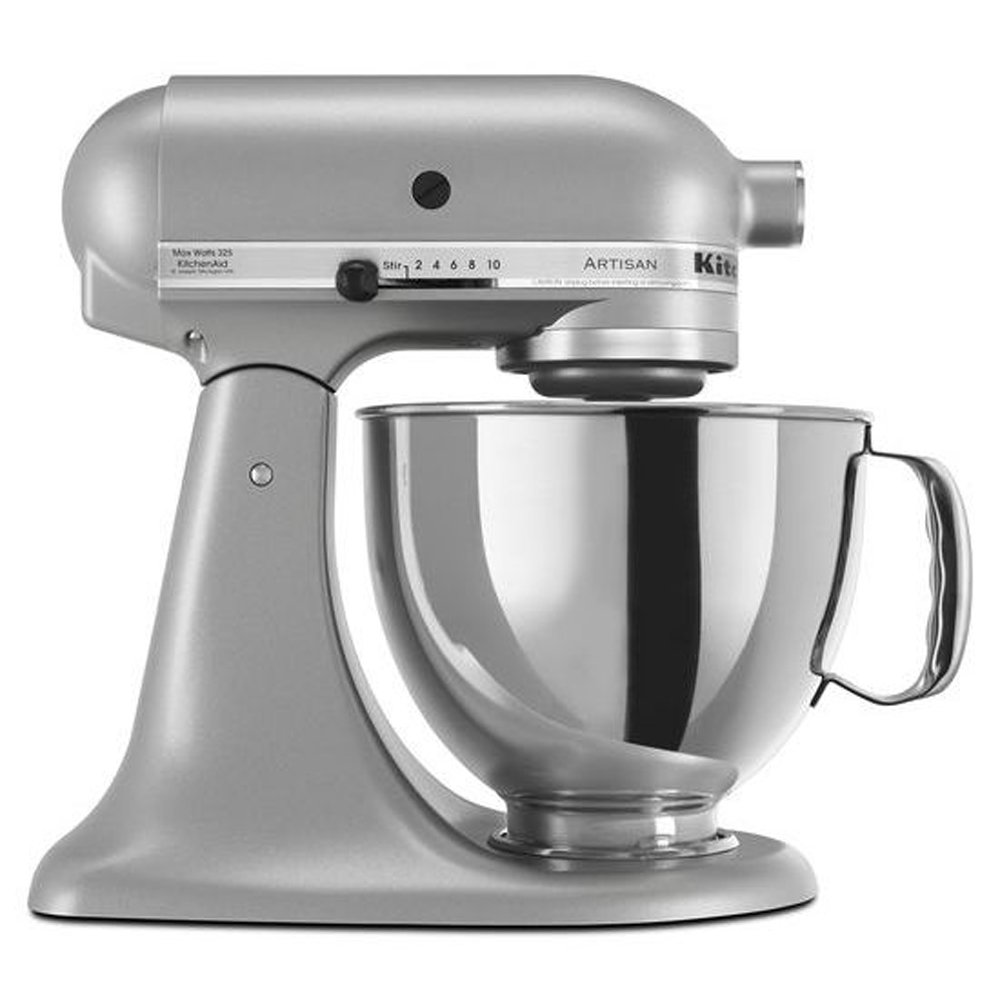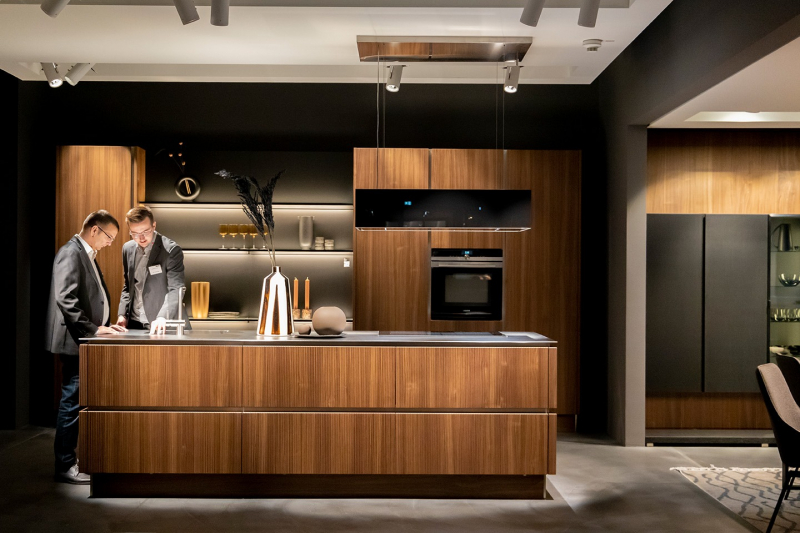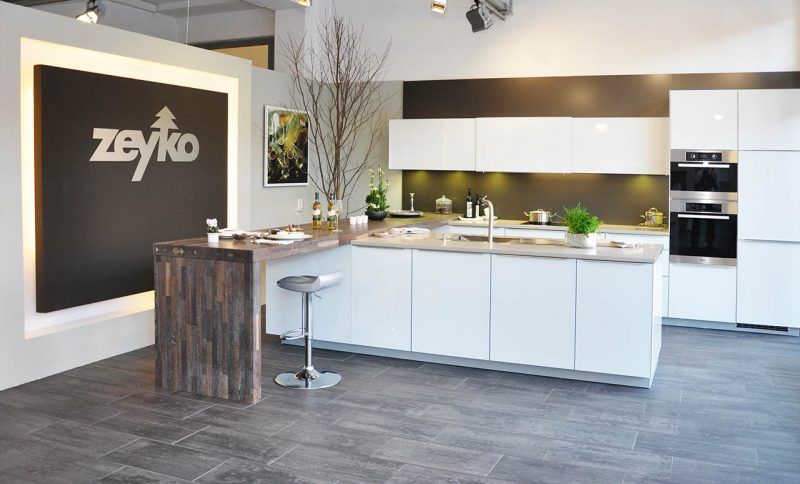Best kitchen appliances available in German stores? Germany boasts a rich history of engineering excellence, and that extends to its kitchen appliances. From sleek, energy-efficient dishwashers to ovens packed with innovative cooking technologies, German brands consistently rank among the best in the world. This exploration delves into the top brands, models, and features available, helping you navigate the market and find the perfect appliances for your kitchen.
We’ll cover everything from the most popular brands and their price points to in-depth reviews and comparisons of specific models across categories like refrigerators, ovens, and coffee machines. We’ll also explore the latest smart home integrations, energy efficiency ratings, and emerging technologies shaping the future of German kitchen appliances. Whether you’re looking for a budget-friendly upgrade or a high-end statement piece, this guide provides the information you need to make informed decisions.
Top-Rated German Kitchen Appliance Brands
Navigating the German market for kitchen appliances can feel overwhelming, given the sheer number of options available. However, several brands consistently stand out for their quality, innovation, and reliability. Understanding their strengths and price points is crucial for making informed purchasing decisions. This section focuses on three leading German brands, providing insights into their market positioning and unique features.
Precise market share data for German kitchen appliance brands is often proprietary and not publicly released in a consolidated manner. However, based on brand visibility, retailer prominence, and consumer reviews, three brands consistently emerge as top contenders: Miele, Bosch, and Siemens.
Brand Comparison: Miele, Bosch, and Siemens
These three brands represent different segments of the market, catering to various budgets and preferences. Miele is often positioned at the premium end, emphasizing longevity and high-end features. Bosch and Siemens offer a broader range, encompassing both mid-range and premium models. The price differences are significant across appliance categories.
Price Point Comparison Across Appliance Categories
Generally, Miele appliances command the highest prices across all categories. A Miele oven, for instance, might cost 20-30% more than a comparable Bosch or Siemens model. This price difference is often reflected in the use of higher-quality materials, more advanced technology, and a longer warranty period. Bosch and Siemens typically offer comparable pricing, with slight variations depending on specific models and features.
For example, a Bosch refrigerator with similar features to a Siemens model might be slightly less expensive. Dishwashers follow a similar pattern, with Miele being the most expensive, followed by Bosch and Siemens, though the price gaps might be smaller than with ovens.
Unique Selling Propositions
Each brand distinguishes itself through unique selling propositions that resonate with specific consumer segments. Understanding these differences is key to choosing the right appliance for your needs and budget.
Miele: Miele’s core USP is its commitment to exceptional longevity and durability. Their appliances are built to last, often boasting warranties exceeding those offered by competitors. They emphasize premium materials, sophisticated design, and advanced technology. Their marketing often highlights the long-term cost savings associated with owning a Miele appliance. They frequently use the tagline, “Immer besser.” (Always better).
Bosch: Bosch emphasizes innovation and a wide range of features across various price points. They offer appliances that blend functionality with modern design. Their marketing focuses on efficiency, convenience, and technological advancements, such as smart home integration capabilities. Their tagline, “Invented for life,” reflects their commitment to practical and user-friendly solutions.
Siemens: Siemens also focuses on innovation and technology, but with a slightly different emphasis. They often highlight energy efficiency and environmentally conscious design. They incorporate features like precise temperature control and intuitive interfaces. Their marketing strategy often showcases the sophisticated technology and user-friendly experience of their appliances.
Best Kitchen Appliances by Category
Choosing the right kitchen appliances can significantly enhance your cooking experience and make your life easier. This section focuses on top-performing appliances available in German stores, categorized for easier navigation and comparison. We’ve considered customer ratings and expert reviews to compile this list, offering a blend of quality and value. Prices are approximate averages and can fluctuate based on retailer and specific model variations.
Top Kitchen Appliances by Category
The following table presents a selection of top-rated appliances across several key categories. Note that rankings are based on a snapshot of publicly available reviews and may vary over time. The listed prices represent average market values and can change depending on promotions and retailer.
| Category | Brand | Model | Key Features |
|---|---|---|---|
| Refrigerators | Liebherr | CBNPes 5256 | Large capacity, BioFresh technology for longer food preservation, energy-efficient design. |
| Bosch | KGN39XI30 | NoFrost technology, adjustable shelves, energy class A+++. | |
| Siemens | KG39NXL30 | SuperFreezing function, LED lighting, spacious interior. | |
| Ovens | Miele | H 2266 B | Self-cleaning function, multiple cooking modes (convection, grill, etc.), precise temperature control. |
| Bosch | HBG675BB1 | Steam cooking capabilities, intuitive interface, energy-efficient operation. | |
| Siemens | HB634GBS1 | Large capacity, easy-to-clean interior, various cooking programs. | |
| Dishwashers | Bosch | SMV88TX01E | Quiet operation, intensive cleaning cycles, flexible racking system. |
| Siemens | SN65HX00KE | varioSpeed Plus for faster washing, dosageAssist for optimal detergent distribution, AquaStop safety system. | |
| Miele | G 7126 SCVi | AutoDos automatic detergent dispensing, flexible loading options, efficient water usage. | |
| Blenders | Bosch | VitaPower MMB65G1B | Powerful motor, multiple speed settings, durable blade design. |
| KitchenAid | K400 | Versatile functionality, multiple attachments available, robust construction. | |
| Philips | HR2100/90 | Compact design, easy to clean, multiple speed options. | |
| Coffee Machines | Jura | WE8 | Automatic milk frothing, one-touch operation, programmable settings. |
| DeLonghi | ECAM23.220.SB | Bean-to-cup functionality, adjustable grinder, multiple coffee options. | |
| Melitta | Caffeo Solo & Milk | Compact design, easy to use, good value for money. |
Average Price Ranges
The average price ranges for the appliances listed above are estimates and can vary depending on the retailer and specific promotions. These are based on observed market prices in Germany.
Refrigerators: €800 – €2000
Ovens: €600 – €1500
Dishwashers: €600 – €1200
Blenders: €50 – €200
Coffee Machines: €150 – €1000
Consumer Reviews and Ratings Analysis

Source: ssl-images-amazon.com
Analyzing consumer reviews provides valuable insights into the strengths and weaknesses of German kitchen appliances. By examining both positive and negative feedback, manufacturers can identify areas for improvement and consumers can make informed purchasing decisions. This analysis focuses on three best-selling appliances to illustrate common trends in consumer satisfaction.Understanding the factors that consistently influence consumer satisfaction is crucial for both manufacturers and consumers.
Durability, ease of use, and feature sets are consistently highlighted in reviews as key determinants of overall happiness with a kitchen appliance. A product’s longevity directly impacts its value, while ease of use determines how frequently and comfortably it is employed. Finally, the features offered must align with consumer needs and expectations.
Common Positive and Negative Reviews for Three Best-Selling Appliances
The following summarizes common positive and negative reviews for three hypothetical best-selling German kitchen appliances: a Bosch dishwasher, a Siemens oven, and a Miele refrigerator. Note that these are illustrative examples based on general trends observed in online reviews and are not tied to specific product models or years.
- Bosch Dishwasher (Model Example): Positive reviews frequently praise its quiet operation, effective cleaning, and durable construction. Negative feedback often centers on the occasional difficulty in loading items and the high price point. Some users also reported issues with the water dispensing mechanism after extended use.
- Siemens Oven (Model Example): Positive comments highlight its precise temperature control, even cooking, and user-friendly interface. Negative reviews sometimes mention concerns about the cleaning process (self-cleaning feature effectiveness), and occasional issues with the oven door seal. Some users found the display slightly confusing at first.
- Miele Refrigerator (Model Example): Miele refrigerators are frequently praised for their superior build quality, energy efficiency, and spacious design. Negative reviews are less common, but some users mentioned the higher price compared to competitors and the occasional need for professional service due to the appliance’s complex technology.
Factors Influencing Consumer Satisfaction
Several factors consistently influence consumer satisfaction with German kitchen appliances. Durability is paramount; consumers expect these appliances to last for many years, justifying their often-higher price tags. Ease of use is also crucial; intuitive controls and straightforward maintenance procedures are highly valued. Finally, the feature set must meet consumer needs and expectations. Features that are rarely used or are overly complicated can lead to dissatisfaction.
Consumer Feedback Questionnaire
A short questionnaire can effectively gather consumer feedback on kitchen appliance features. This questionnaire focuses on key aspects to determine feature prioritization and product improvement areas.
| Question | Response Options |
|---|---|
| How important is energy efficiency to you? | Very Important, Important, Neutral, Unimportant, Very Unimportant |
| How easy is the appliance to clean? | Very Easy, Easy, Neutral, Difficult, Very Difficult |
| How satisfied are you with the appliance’s noise level? | Very Satisfied, Satisfied, Neutral, Dissatisfied, Very Dissatisfied |
| How intuitive are the appliance’s controls? | Very Intuitive, Intuitive, Neutral, Unintuitive, Very Unintuitive |
| Which features are most important to you? (Select up to three) | (List of common features, e.g., Self-cleaning function, Special cooking modes, Precise temperature control, Large capacity) |
Appliance Features and Technologies

Source: toplist.info
German kitchen appliance manufacturers are at the forefront of innovation, constantly integrating new features and technologies to enhance convenience, efficiency, and sustainability. This section delves into the prevalent features, focusing on smart home integration, energy efficiency, and emerging technologies shaping the modern German kitchen.Smart home integration is rapidly gaining traction in the German appliance market. Many high-end models now offer connectivity via Wi-Fi or Bluetooth, allowing users to control appliances remotely through smartphone apps.
This includes features like preheating ovens, adjusting washing machine cycles, and monitoring refrigerator temperatures, all from a user’s mobile device. While not yet ubiquitous across all price points, smart functionality is becoming increasingly common, particularly in brands targeting younger, tech-savvy consumers.
Smart Home Integration in German Kitchen Appliances, Best kitchen appliances available in German stores
The integration of smart home technology into German kitchen appliances offers significant advantages for consumers. For example, a user can remotely preheat their oven while commuting home, ensuring a hot meal is ready upon arrival. Similarly, smart refrigerators can alert users to expiring food items, reducing waste and optimizing grocery shopping. This level of control and convenience is driving the adoption of smart appliances, although concerns about data privacy and the potential for technical glitches remain.
The major appliance manufacturers are actively addressing these concerns through improved security protocols and user-friendly interfaces.
Energy Efficiency Ratings of German Kitchen Appliances
German appliances typically adhere to strict EU energy efficiency standards, often exceeding minimum requirements. Energy labels, ranging from A+++ (most efficient) to G (least efficient), are clearly displayed on appliances. Consumers can easily compare the energy consumption of different models within a category, enabling informed purchasing decisions. For instance, a dishwasher with an A+++ rating will consume significantly less energy and water than a model with a C rating.
This focus on energy efficiency not only benefits the environment but also translates to lower operating costs for consumers over the appliance’s lifespan. The higher initial cost of a more energy-efficient model is often offset by lower running costs over several years.
Emerging Technologies in Modern German Kitchen Appliances
Three notable emerging technologies are significantly impacting the design and functionality of modern German kitchen appliances.
- Induction Cooking with Precise Temperature Control: Induction cooktops are becoming increasingly sophisticated, offering precise temperature control and rapid heating. Some models even incorporate features like automatic pan detection and intelligent power management to optimize energy efficiency. This technology enhances cooking precision and safety, allowing for more consistent results and reducing the risk of burning food.
- AI-Powered Recipe Assistance: Smart ovens and cooking appliances are integrating artificial intelligence to offer personalized recipe suggestions and guided cooking instructions. These systems learn user preferences over time, providing tailored recommendations and optimizing cooking times and temperatures. This feature simplifies cooking, particularly for users who are new to cooking or want to explore diverse culinary options.
- Self-Cleaning Technologies: Beyond traditional self-cleaning cycles, advanced cleaning technologies are emerging, such as steam cleaning and pyrolysis. Pyrolytic ovens, for example, use high temperatures to incinerate food residue, leaving behind only a small amount of ash that can be easily wiped away. These technologies minimize the time and effort required for appliance maintenance, contributing to greater convenience for the user.
Where to Buy Kitchen Appliances in Germany
Finding the perfect kitchen appliance in Germany is easier than you might think, with a wide range of options available both online and in physical stores. This section will guide you through some of the top retailers and help you navigate the process of comparing prices and understanding warranty information. Knowing where to look and what to expect will ensure a smooth and satisfying shopping experience.
Choosing the right retailer depends on your preferences for online versus in-store shopping, as well as your priorities regarding price, selection, and customer service. Both online and brick-and-mortar stores offer unique advantages.
Top Online and Physical Retailers for Kitchen Appliances in Germany
Below are some of the most popular online and physical retailers where you can find a wide selection of kitchen appliances in Germany. This list is not exhaustive, but it represents some of the most prominent and reliable options.
- Online Retailers:
- Amazon.de: Offers a vast selection, competitive pricing, and often includes customer reviews.
- Otto.de: A well-established German online retailer with a large catalog of home appliances, including many kitchen appliances.
- MediaMarkt.de: Known for electronics, MediaMarkt also carries a significant range of kitchen appliances.
- Physical Retailers:
- MediaMarkt: A large electronics retailer with physical stores across Germany, offering a wide selection of kitchen appliances and the opportunity to see and test products in person.
- Saturn: Similar to MediaMarkt, Saturn is another major electronics retailer with a strong presence in Germany, offering a comparable selection of kitchen appliances.
- Galeria Kaufhof/Karstadt: These department stores often have dedicated sections for home appliances, providing a curated selection and in-person shopping experience.
Comparing Prices Across Retailers
Comparing prices across different retailers is crucial for finding the best deal. A simple method involves visiting the websites of each retailer and searching for the specific appliance model you desire. For example, let’s say you’re looking for a specific model of Bosch blender, the “Bosch VitaMaxx 1000.” You would search for this model on Amazon.de, Otto.de, and MediaMarkt.de, noting the price listed on each site.
Remember to include any applicable shipping costs in your price comparison. Price comparison websites can also be helpful in this process, although it is always best to verify the price directly on the retailer’s website.
Warranty and Return Policies for Kitchen Appliances in Germany
German retailers generally offer warranties on kitchen appliances, typically ranging from 2 to 3 years depending on the manufacturer and specific product. These warranties usually cover manufacturing defects. Return policies vary by retailer, but you generally have a 14-day right of withdrawal (Widerrufsrecht) for online purchases, allowing you to return the item for a full refund if you’re not satisfied.
For purchases made in physical stores, return policies are less standardized and will depend on the individual retailer’s policy. Always check the retailer’s website or inquire in-store about their specific warranty and return policies before making a purchase. Be sure to retain your receipt and any related documentation.
Illustrative Examples of High-End Appliances
German engineering is renowned for its precision and quality, and this is clearly reflected in the country’s high-end kitchen appliances. These appliances represent the pinnacle of design, functionality, and technological innovation, offering features and performance far beyond standard models. Let’s explore some examples.
Liebherr Premium Refrigerator: Design and Functionality
The Liebherr SBSes 7252 represents a pinnacle of refrigerator design. This side-by-side model boasts impressive dimensions of approximately 178cm in height, 91cm in width, and 65cm in depth. Its exterior is typically crafted from high-quality stainless steel, often featuring a sleek, minimalist aesthetic. The interior showcases Liebherr’s renowned BioFresh technology, which utilizes precise temperature and humidity control to extend the freshness of fruits, vegetables, and other perishable items significantly.
Separate compartments allow for optimal storage of different food types. Other features commonly include adjustable shelves, LED lighting for clear visibility, and sophisticated cooling systems that minimize energy consumption. The materials are durable and designed for longevity, using high-grade plastics and stainless steel components resistant to corrosion and scratches.
Miele Steam Oven: Cooking Capabilities
Miele’s top-of-the-line steam ovens, such as the Miele DGC 6860, epitomize advanced cooking technology. These ovens offer a multitude of cooking modes, combining conventional heating with steam to achieve perfectly cooked results. The user interface is usually intuitive, often featuring a large, color touchscreen display for easy navigation and selection of cooking programs. Innovative features like automatic cleaning cycles (pyrolytic cleaning), precise temperature control, and various pre-programmed settings for different dishes streamline the cooking process.
The oven’s cooking capabilities extend far beyond simple baking and roasting; they often include specialized settings for delicate dishes requiring precise temperature and humidity management. The materials used are typically high-grade stainless steel, ensuring durability and ease of cleaning.
Bosch High-End Dishwasher: Cleaning Mechanisms
Bosch’s top-end dishwashers, like the Bosch Serie 8 SMS88TW01G, showcase advanced cleaning mechanisms. These dishwashers often employ innovative spray arms and water filtration systems to ensure thorough and efficient cleaning. Features like varioSpeed Plus, which significantly reduces washing time without compromising cleaning performance, are common. The machines frequently include sensor technology that adjusts the wash cycle based on the level of soiling, optimizing water and energy consumption.
Their cleaning efficiency is often rated very highly by consumer testing organizations. The interior is typically constructed from corrosion-resistant stainless steel, and the exterior often features a sleek design with integrated controls. The filtering systems are designed for easy maintenance and cleaning, maximizing the lifespan of the appliance.
Summary

Source: pinimg.com
Choosing the right kitchen appliances can significantly enhance your cooking experience and overall enjoyment of your home. This guide has explored the best kitchen appliances available in German stores, considering various factors like brand reputation, customer reviews, features, and price. By understanding the strengths and weaknesses of different models and brands, you can confidently select appliances that meet your needs and budget.
Remember to consider your personal cooking style and lifestyle when making your final decision. Happy cooking!
Popular Questions: Best Kitchen Appliances Available In German Stores
What are the typical warranty periods for kitchen appliances in Germany?
German retailers typically offer a 2-year warranty on kitchen appliances, covering manufacturing defects. Extended warranties are often available for an additional cost.
Where can I find independent reviews of German kitchen appliances?
Several websites and consumer magazines in Germany publish independent reviews of kitchen appliances. Check sites like Stiftung Warentest (a reputable consumer testing organization) and various online retailer review sections.
Are there any German brands known for particularly quiet appliances?
While noise levels vary by model, brands like Miele and Bosch are often praised for their quiet operation, particularly in dishwashers and refrigerators.
How easy is it to repair German kitchen appliances if something goes wrong?
Major brands generally have extensive service networks in Germany, making repairs relatively accessible. However, repair costs can vary depending on the issue and the appliance’s age.
What are the common payment methods accepted in German appliance stores?
Most German retailers accept common payment methods including credit cards (Visa, Mastercard), debit cards (EC-Karte), and online payment systems like PayPal. Cash is also widely accepted in physical stores.



